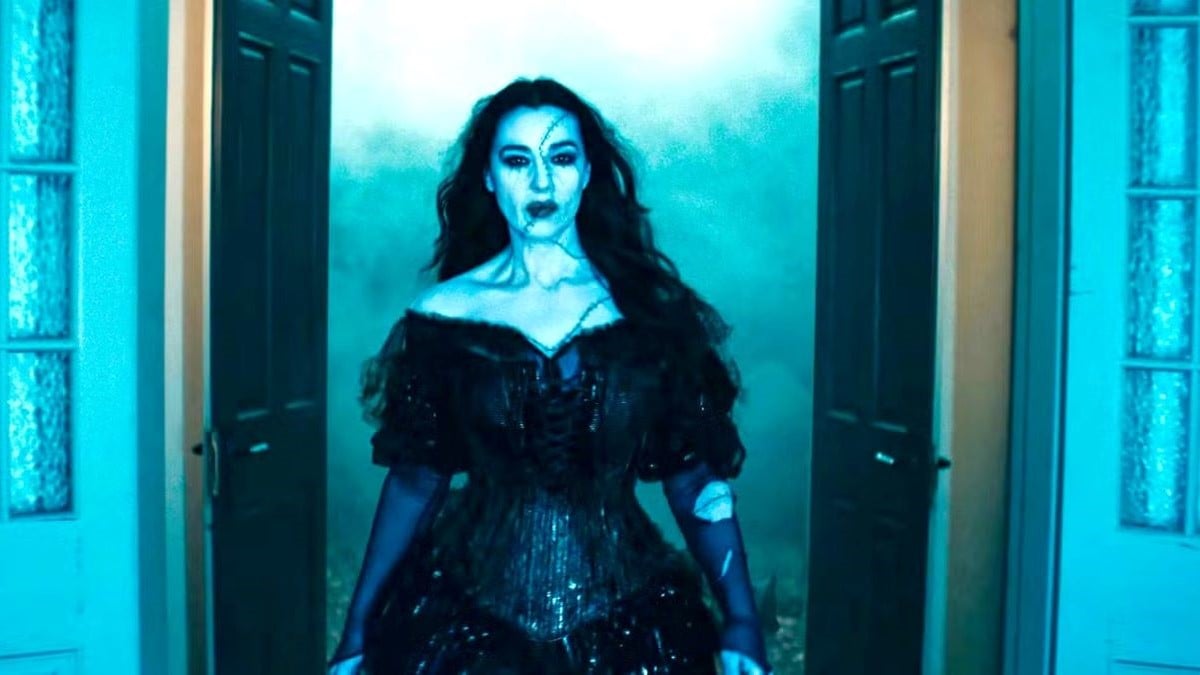Look, I get it; it’s easy to write off legacy sequels as complete and utter cash grabs operating at a cinematic deficit for the sake of lining the pockets of executives and egos of fandoms. This emotion, however, could most aptly be characterized as resignation, and that’s not a great approach to any facet of life.
So, when confronted with a film like Beetlejuice Beetlejuice — perhaps the definitive legacy sequel of the year thanks to the 36 year gap between it and the original film — we need to at least bring our most sincere eye to the film, if not to spot its ostensible purpose for existence, then to try and understand what the franchise could do better going forward. And now, you don’t even need to buy a movie ticket to do so.
Per FlixPatrol, Beetlejuice Beetlejuice has debuted as the top film on Max in the United States at the time of writing, outclassing the long-incumbent Will Ferrell classic Elf (second place) and a sixth place The Goonies, a beloved 80s film that has yet to be hit by the legacy sequel hammer, despite the internet’s best efforts.
Beetlejuice Beetlejuice sees Winona Ryder reprise her role as Lydia Deetz, who now finds herself navigating adulthood as a mother to her daughter Astrid (Jenna Ortega) and as the host of Ghost House, a television program where she interviews people who claim to have encountered spirits in their homes. The death of Lydia’s father brings the family back to Winter River, where they find themselves drawn into the series of gonzo afterlife shenanigans that Lydia will, unfortunately, need the help of Betelgeuse (Michael Keaton) to resolve.

Beetlejuice Beetlejuice made $451 million against a reported $100 million budget, so it was certainly a case of Mission Accomplished from Warner Bros.’ point of view. As a viewing experience, however, it’s a different story; with an almost pathological adherence to disjointedness coupled with its overflowing bucket of nostalgic assets, the film is a completely alienating outing for anyone who hasn’t already dedicated part of their identity to Tim Burton.
Except, Burton knows that. Burton knows that this audience won’t care about the film’s creative boons so long as they get to see the things that they like about Beetlejuice; after all, the reason the original film has persisted the way it has had nothing to do with its genuinely inventive themes or storytelling, but because of its fatefully co-opted vibe that’s so-often used by fans to ensure others how strange and unusual they are.
With this in mind, pay attention to how Burton characterizes Lydia, Betelgeuse, and Catherine O’Hara’s Delia. Lydia loses her inner identity following the death of her ex-husband, and her arc is centered around learning to let go of the things she used to decorate her outer identity in order to make up for that. Delia uses the death of her own husband as the fuel for yet another insincere artistic endeavor that leaves her as empty — if not more so — than she was before.
And then Betelgeuse, the eponymous wildcard, is a character who has always, deliberately been written in a way where he’s entertaining without being interesting (i.e. he has no development as a character). Meanwhile, his film of origin, Beetlejuice, is both entertaining and interesting, but no one seems to love it for how interesting it is, instead attaching to how entertaining it is. Oh, Burton, you son of a gun.











Published: Dec 8, 2024 12:35 pm